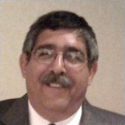About the Scholarship
Eduardo Flores-Kastanis was one of the five “network initiators” of ARNA. He worked with the other initiators from July 2012 until he was taken from us by cancer in May 2013. Eduardo was a leading figure in action research in Mexico
and prepared many educators to become practitioner-researchers. He comploeted his doctoral studies at State University of New York – Buffalo in 1994 and was a faculty member in the Graduate School of Education of Tecnológico de Monterey from 1985-2011. From 2011-2013 he was Professor at Universidad Autonomo de Chihuahua.
In notifying ARNA of his passing, a colleague wrote from Chihuahua, Mexico:
“He founght hard for this arid land and installed innovative practices that have improved basic education in schools . . . [although] “he lost the fight against cancer . . . he will rest in peace as a great teacher and researcher and will always live in our memories.”
Working with his wife Eva Mendez, also a teacher, ARNA established the Eduardo Flores Scholarship Fund in November 2013. Eva Mendez wrote the tribute below in recognition of her late husband’s accomplishments:
“In addition to being a widely recognized researcher, Eduardo Flores Kastanis was an extraordinary teacher who helped an infinite number of students with their academic careers while never forgetting that they were human beings with problems and issues beyond their educational needs. What makes a professor extraordinary is his ability to get to know his students individually, as well as attend to their academic and personal needs. In addition to knowing his students more personally, that promoted their growth as individuals.”
Eduardo was trusted, and he challenged his students. Many educators learned to design their teachings and took ideas from his teaching style of exposing his students to new ideas and concepts. Eduardo’s guiding direction allowed students to take their first steps towards becoming educational researchers. As a researcher himself, Eduardo, without a doubt, was one of the most levelheaded individuals in regards to the educational issues in our country; his sensibility in proposing solutions to complex problems is one of the main lessons he has left his colleagues with. His projects were not based on idealistic situations in which everything turns out as planned or hoped. He was always competent in understanding others, finding their motivations and making these motivations part of projects. From this perspective, the research he undertook ceased to be unilateral its focus, and instead proposals were created in which the principal actor was engrossed in the project, and became more than just a spectator. This was done in such a way that each project had a great wealth of information to be shared with researchers, participants, and the community in general.
We in ARNA still miss Eduardo for being a teacher willing to give advice, for being a researcher willing to share, for being that person who showed us a different way of being as human beings. The Eduardo Flores Scholarship allows Eduardo’s memory to be carried on with the practice of action research.
As Eva Mendez stated, “The hope is that this scholarship continues Eduardo’s legacy, and that it helps emerging researchers in their careers in education, and possibly into their potential growth as educational researchers.”
Prospective registrants with documented need may apply for a conference registration fee waiver.
How are recipients selected for the Flores Scholarship Program?
Applications will be reviewed annually, starting in February. Preference is given to applicants who have been ARNA members in previous years, who have demonstrated a history of commitment and impact in action research, and who work with marginalized populations or in particularly challenging research contexts. We seek high-impact, difference-making individuals for this scholarship, because no single recipient may receive this scholarship more than once.
What do scholars get out of the conference?
A lot! Here are a few things that have happened at conferences:
- keynotes from leading action researchers, including Jean McNiff (UK), Budd Hall (Canada), César Osorio Sánchez (Columbia), and Marilyn Cochran Smith and Susan L. Lytle (USA)
- master classes with Janette Bobis (Australia), Mary McAteer (UK), Catherine D. Bruce (Canada)
- small group sessions to share research projects and findings in a wide range of contexts, including participatory action research, medicine, education (early childhood through to doctoral studies) and communities.
Visit the conference webpages for more information on previous conferences, including programs and proceedings. Awardees will be asked to write a summary of their conference experience, to be posted on the ARNA website.
Who Should Apply?
Applicants with a strong interest in action research in Mexico and South America and who have a career or aspirations involving action research within Mexico and South America are encouraged to apply.
Interest may be demonstrated through previous work, internships, undergraduate or graduate-level study, involvement through volunteer programs with governmental, non-governmental, or private sector organizations, and research and publication on topics relevant to the area. Competency in one of the area’s major languages is highly important.
Selection Criteria:
- Knowledge of Latin America, the Caribbean, and/or Iberia
- Demonstrated commitment to action research
- Record of academic achievement
- Competency in one or more of the area’s languages
- Demonstrated financial need
Application Materials:
- Personal statement (maximum of 500-800 words)
- Current résumé (not to exceed 2 pages)
- Letter of reference
Timeline:
Deadline for submission: April 15
Announcement of Recipients: As soon as possible after April 15
Conflict of Interest:
ARNA will establish a committee to review the applications and determine the recipients. The committee will make every effort to avoid any conflicts of interest
Guidelines:
Personal statement (500-800 words maximum): In the personal statement please tell the committee about your documented commitment and interest in action research within Mexico or South America. Describe why you would like to attend the conference and how it would fit in with your research goals. Commitment in related areas, such as human rights, transnationalism, migration, ecology or natural resources, indigenous peoples, politics, etc., is also of interest to the committee. Describe your academic, work, or volunteer experiences and expertise in the region. Documented commitment may take the form of work, research on, or volunteering in the region. Please send Word or PDF files only. Please use the following file naming convention: EFS_LASTNAME_firstname_app
Letter of reference: One letter of reference is required as part of your application. The letter should be from someone able to speak to your abilities, achievements, and perhaps personal qualities. Your reference may be provided by a professor, employer or supervisor, professional colleague, or similar individual. Please submit your letter of reference with your application package.
Document checklist: Before submitting your application, prepare the following documents:
- Personal statement (500-800 words maximum, Word or PDFs only; please use the following naming convention for the file: EFS_LASTNAME_firstname_app)
- Current résumé (2 page maximum, Word of PDFs only; please use the following naming convention for the file: EFS_LASTNAME_firstname_rec)
- Send completed application electronically to ARNA Chair Candace Kaye at
Deadline for all application materials: April 15 annually
For further information, please contact ARNA Chair Candace Kaye at
To Apply for an Eduardo Flores-Kastanis Scholarship
Send personal statement, current resume, and letter of reference to ARNA Chair Candace Kaye at

